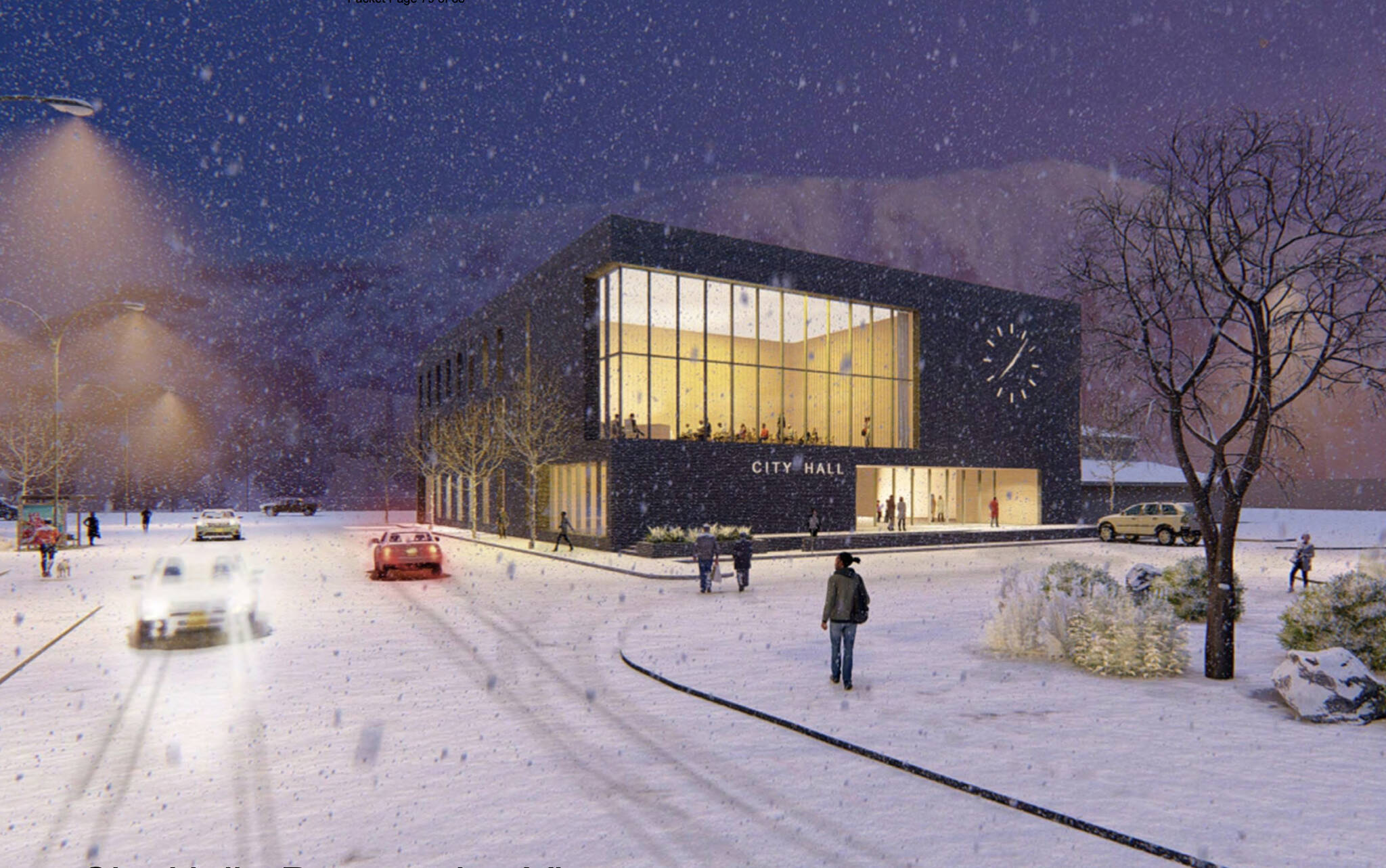The view of downtown Juneau from the Mount Roberts tram extends northwesterly from the library to the Dimond Courthouse and State Capitol Building. Across the street from those is the State Office Building. And as if to inform visitors that Juneau is a government town, the nine-story Federal Building stands tall alongside the Juneau flats.
From that vantage point, City Hall isn’t visible. It’s blocked from view by trees climbing the mountain slope. But even if it wasn’t obscured, architecturally speaking, it’s hardly worth noticing. And that conveys a lack of pride in our experiment with local self-governance.
Now to some, the City and Borough of Juneau is just another example of a wasteful, tax and spend bureaucracy. But we own it. And as Winston Churchill once observed, our democratic form of government isn’t “perfect or all-wise. Indeed, it has been said that democracy is the worst form of government except for all those other forms that have been tried from time to time.”
That’s why we’ll continue to have elections for mayor and representative assembly members. Why we expect them to hire a City Manager. And why every department under him or her will be staffed with civil servants.
It’s true they could all continue to work from the several different buildings they occupy now. But extensive repairs and renovations required in the current City Hall will cost about $12 million. And what assembly member Wade Bryson thinks is worse is the fact CBJ is paying $1 million each year in leases “for a business that’s in business forever.”
“Every aspect of Juneau life will improve by us doing city hall correctly” he’s argued. The proposed building on Whittier Street would be a “very appropriate city hall in the center of government operations.” It would serve as a declaration that “we believe in our future, and we believe in our future as the capital.”
James Bibb, a principal architect at NorthWind Architects in Juneau, referred to the concept design as a “box.” That’s in keeping it simple for the sake of the taxpaying public.
But a too simple box would inspire neglect, not upkeep.
In this case, the architecture is uniquely interesting and elegantly inviting for visitors. It should be appreciated enough by the public that we’ll expect CBJ’s budget to include sufficient funds to ensure the buildings attractiveness and functionality are well maintained.
The same can be said for how we approach government. The desire to shrink it “down to the size where we can drown it in the bathtub” as libertarian lobbyist Grover Norquist once said, would guarantee dysfunction and failure. Then we’d be faced with one of the imperfect forms of governments worse than democracy.
For sure, construction and maintenance of the highest quality buildings for government use costs us taxpayers more. But the bold and enduring physical architecture housing our vital democratic institutions in Washington, D.C., every state capital, and City Halls across the country, are all investments in the powerful idea of a government of the people, by the people and for the people.
That’s a business we want to be in business forever.
Of course, the buildings of every nation state reflect that forever goal. For instance, the Kremlin’s architecture is magnificent.
But every Russian government building that’s thirty years or older holds the history of a failed communist state. They’re now home to an autocratic regime that launched an unjust, murderous war against Ukraine and is arresting any Russian who speaks out against it.
There are plenty of less spectacular examples of rotten governments watching over its citizens from powerfully built complexes. In such places, the peoples’ opinions of the government that occupies them, if they can be expressed at all, don’t matter.
In Juneau, our assembly is asking for permission to build a new City Hall. That doesn’t mean we should give them what they want. But instinctively dismissing the proposal as an unnecessary expense isn’t wise. Because as Bryson pointed out, over the long term it makes good economic sense. And it’s an investment in a future in which the next generations of Juneau’s residents should feel as blessed as we’ve been by the gift of self-governance.
• Rich Moniak is a Juneau resident and retired civil engineer with more than 25 years of experience working in the public sector. Columns, My Turns and Letters to the Editor represent the view of the author, not the view of the Juneau Empire. Have something to say? Here’s how to submit a My Turn or letter.

